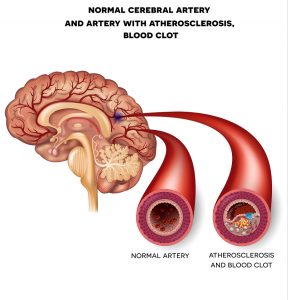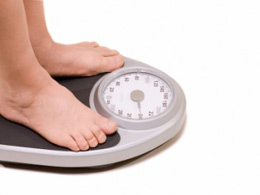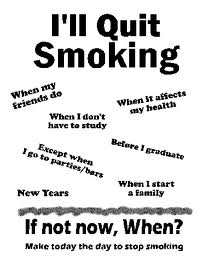There are several ways to prevent plugged arteries, which will translate into less heart attacks and strokes. The message is simple: if you get less heart attacks and strokes, you will live longer. Below I am examining ways to prolong life by various ways to prevent plugged arteries.
You probably heard of plaque formation in the arteries. This is the process where a combination of fat, calcium, cholesterol and cell waste forms a deposit (plaque) under the lining of the arteries.
The end result is that the blood won’t be flowing freely through the affected arteries. This can cause a heart attack or a stroke. Essentially, this is the point where a clot forms in the narrowed passage of the artery. It is also the point, when the clinicians make a diagnosis of a heart attack or a stroke.
Let’s examine what leads to plaque formation in the arteries.
Trans fats
Trans fats are contained in fried foods like French fries, in margarines and other butter substitutes. As margarine is a common ingredient of cakes, cookies, pastries and pies, these are all bad news for our heart health. I consider them off limits. If you eat those foods, you build up plaque in your arteries, which leads to premature heart attacks and strokes.
Lack of exercise
It has been common knowledge for a long time that being sessile leads to premature hardening of the arteries. In the late 1800s to the early 1900s physical exercise was promoted in various countries around the world.
The latter part of the 20th century saw a renaissance of the fitness movement. It was trendy to go running, cycling, and swimming or working out at a gym. It is not only trendy but healthy: cardiologists support all of these sports to help people stay healthy and keep the arteries free from plaque formation.
Too many refined carbs
Sugar and processed foods, especially those with added sugar to improve flavor, have a direct relationship to heart attacks and strokes. It is known that sugar causes high LDL cholesterol and high triglycerides. In addition sugar also causes inflammation of the arterial walls, which causes plugged arteries. However, sugar is only part of the problem. Starchy foods like rice, noodles, cakes, cookies and other foods made with flour get broken down into sugar. Both lead to insulin production. And both lead to changes of the lining of the arterial walls.
In the 1980s and 1990s there was a school of thought that a low fat diet would be healthy in terms of heart attack and stroke prevention (the low fat/high carb diet). This turned out to be a nutritional disaster: the high carb content of such a diet was the problem. It led to weight gain, obesity and death.
Red meat is a problem
Several studies have documented that saturated fat from red meat is only part of the problem. The other part is carnitine, which is abundantly present in beef, pork, lamb and venison. But mortality of people eating unprocessed red meat is only marginally elevated. It is when people eat processed red meat that there is a significant rise in mortality from heart attacks and strokes. This study examined this. They found that gut bacteria were stimulated by red meat to produce substances that stimulate bacteria in your gut to secrete TMA and TMAO, which makes your platelets more sticky and contributes to plugging your arteries. This research paper from the Cleveland Clinic explains it in more detail.
What must I do to prevent plugged arteries?
Eat the right food
A Mediterranean diet is anti-inflammatory. It contains lots of vegetables, but little red meat. Fish and chicken that contain much less L-carnitine are more dominant in Mediterranean food. As mentioned above, you want to avoid trans fats. And you also want to avoid sugar and too many starchy foods. This includes sugar-sweetened beverages. Making these changes will keep your insulin levels in the normal range eliminating inflammation in your arteries. Avoid eating processed foods, because they contain food preservatives and lots of sugar that we want to avoid. Eat more unsaturated fats like avocados, walnuts, olives, trout, herring, and salmon. The last three contain marine-derived omega-3 fatty acids that are particularly helpful in preventing heart attacks and strokes by being anti-inflammatory and by elevating the protective HDL cholesterol. Drink lots of green or black tea, rooibos tea, or ginger tea. They contain antioxidants and bioflavonoids that prevent plugged arteries.
Regular exercise
Many publications have shown that regular physical exercise will lower blood pressure, condition your muscles including your heart and lower mortality.
Only 10 minutes of brisk walking every day reduced the death rate by 33% compared to those who did not exercise at all.
Regular physical exercise does not only prevent heart attacks and strokes, it also reduces the risk of getting another 35 chronic diseases, as the link shows.
Here are some common exercises: jogging, cycling, running, brisk walking, swimming, playing tennis and doing aerobics. All of them will strengthen your muscles and condition your heart and lungs.
Other ways to prevent plugged arteries
Smokers must quit smoking, as smoking has been identified as a major risk factor for heart attacks and strokes.
Exposure to prolonged stress is a factor that leads to hardening of arteries. Stress management is possible by counseling, by self-hypnosis, yoga, tai chi and other relaxation methods.
Risk factors associated with plugged arteries
We already have mentioned the risk factors that are associated with clogged arteries. But for clarity I would like to repeat the major risk factors here.
- Smoking
- High blood pressure
- Elevated LDL cholesterol (the bad cholesterol)
- Reduced HDL cholesterol (HDL is increasing with exercise)
- Obesity (often associated by ingestion of too many carbs)
- Insulin resistance and diabetes
- Lack of exercise (too much sitting in front of the TV or doing computer work)
- Unhealthy diet (Standard American diet instead of Mediterranean diet)
Conclusion
We often think that we have no input whether or not we get a heart attack or a stroke. This is completely wrong. If you adopt the solutions I have listed here, you can change things for the better. You will reduce your risk to get a heart attack or a stroke. Treat high blood pressure. Stop smoking. Cut out sugar and starchy foods to reduce triglycerides and LDL cholesterol. Exercise regularly and your HDL will protect you from heart attacks and strokes. Shed pounds, if you are obese by starting a Mediterranean diet and cutting out sugar. This will also improve your insulin resistance or diabetes. Start daily exercise as this reduces your risk of a heart attack or a stroke. In addition exercise reduces the risk of 35 chronic diseases that have also been mentioned in one of the links.








